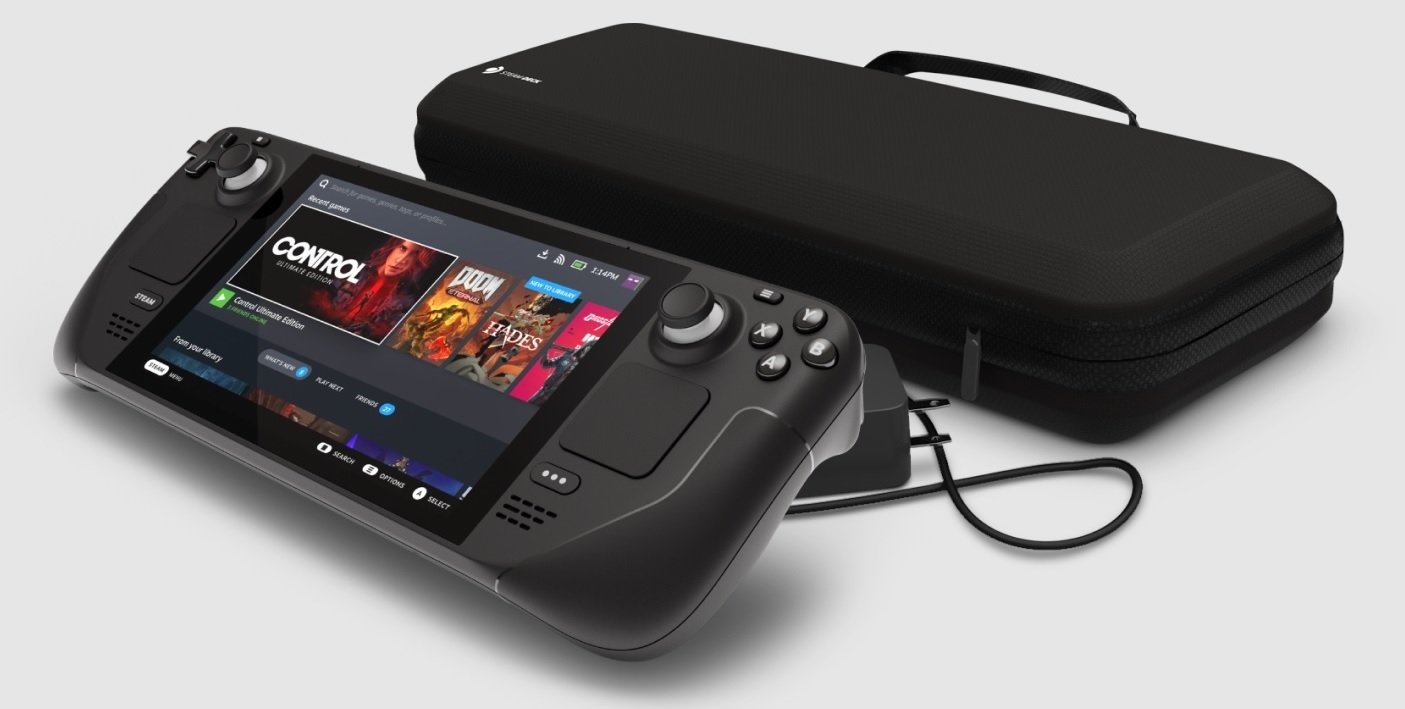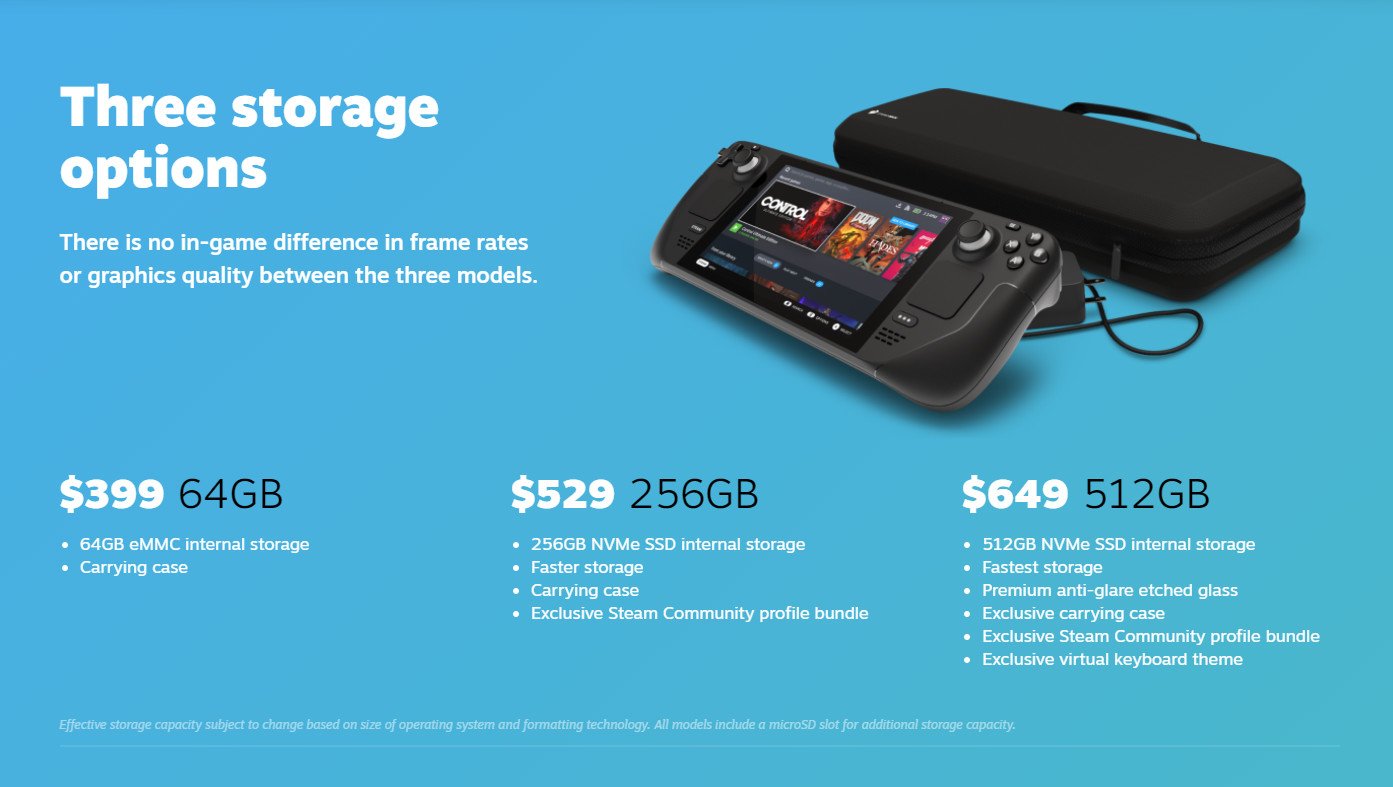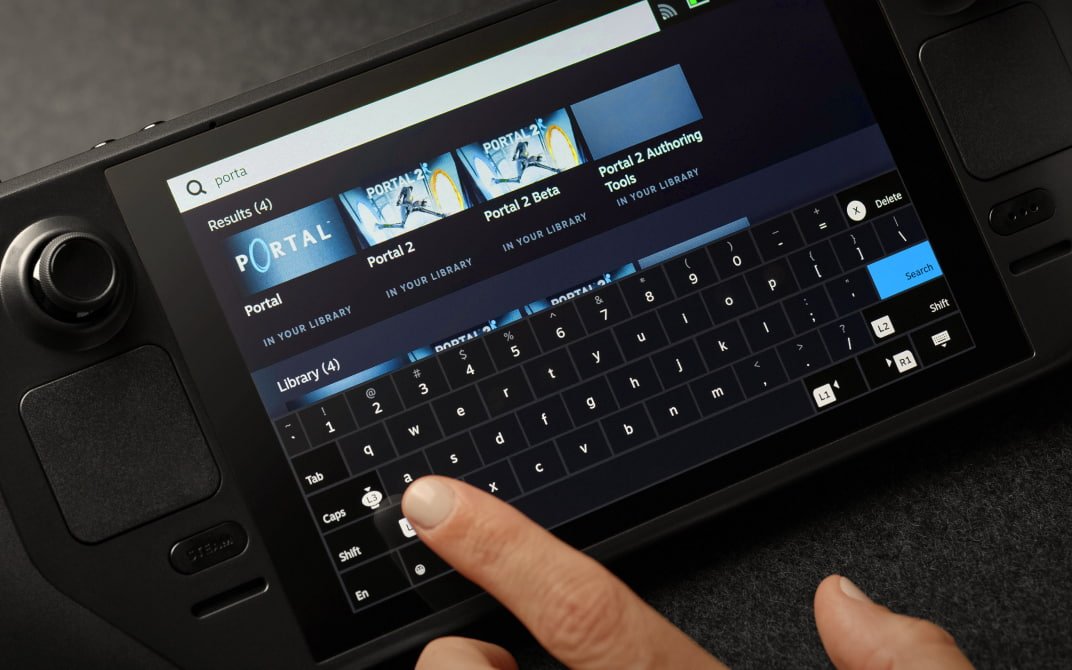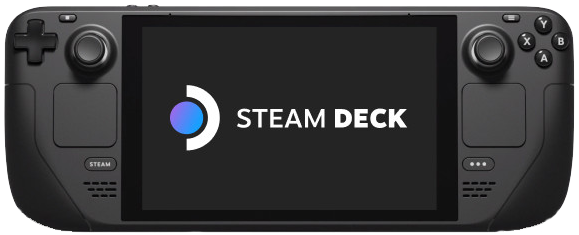
All the latest news, reviews, and guides for Windows and Xbox diehards.
You are now subscribed
Your newsletter sign-up was successful
Which Steam Deck should you buy? Extra features, prices, and storage explained.
What's up with Steam Deck storage options?
Information is still short on exact performance numbers for the Steam Deck's storage, but we do know that the base version will use eMMC PCIe Gen 2 storage while the other two versions will use an NVMe PCIe Gen 3 solid-state drive (SSD). You can check out an article I wrote comparing eMMC vs. SSD storage for a deeper dive, but this is what you need to know when it comes to the Steam Deck.
PC gamers already know how quickly storage fills up. A larger SSD is always recommended.
eMMC storage — which stands for embedded MultiMediaCard — is generally used in cheaper electronics as a way to keep prices down. eMMC storage isn't as fast as NVMe SSD storage, but it does generally draw less power. For a handheld device, that's especially important. Speaking on performance, there is a significant gap between eMMC and NVMe. If you want your games to load fast, you will definitely want to go with one of the NVMe SSD options. You can check out our Surface Go review to see how performance compares between eMMC and NVMe storage.
It seems that you won't be able to get inside the Steam Deck to swap out the NVMe storage, at least without some serious disassembly. In the case of eMMC we already know it's impossible. The "embedded" part of the name is quite literal. The Steam Deck does come with a UHS-I microSD card reader for expandable storage, allowing you to add more (though also slow) storage.
Bottom line? If you're a casual user looking to enjoy lightweight indie games on the go, the eMMC storage should get along fine. And it will save you a good chunk of money. But for those who are looking to enjoy the full PC experience in handheld mode, the NVMe storage options will make a whole lot more sense just based on performance.
How much storage do you really need?
The eMMC storage available in the basic Steam Deck model is sized at just 64GB. Again, if you're looking for a more casual experience that should be enough. The same holds true if you plan on streaming to the Steam Deck. But modern AAA game file sizes are huge, and many games won't fit at all on the 64GB version.
Seasoned PC gamers no doubt already understand how quickly storage fills up, so I'd recommend at least the 256GB NVMe SSD version for anyone but casual gamers. Since the internal storage cannot be upgraded, that's what you're going to be stuck with save any microSD storage you add.
The 512GB model is also there for anyone with deeper pockets. If you have the money, go with the largest storage option. It should also be the fastest storage, if only because of its larger size.
All the latest news, reviews, and guides for Windows and Xbox diehards.
What are the other differences between Steam Deck models?
Other than the storage changing based on how much you want to pay, the Steam Deck will have the same performance hardware inside. This includes an AMD Zen 2 APU with four cores and eight threads, 16GB of LPDDR5 RAM, and a 7-inch 1200x800 display with 400 nits brightness.
The most expensive model will come with extra premium anti-glare glass for the screen, an exclusive virtual keyboard theme, and an exclusive carrying case. The middle and introductory models also come with a carrying case, though it's not labeled as being exclusive. The middle- and high-end models also have a Steam community profile bundle. The introductory model comes with just a carrying case.
For more information about the Steam Deck, be sure to have a look at our article on Steam Deck software and games explained, as well as our Steam Deck preorder guide.

Cale Hunt brings to Windows Central more than nine years of experience writing about laptops, PCs, accessories, games, and beyond. If it runs Windows or in some way complements the hardware, there’s a good chance he knows about it, has written about it, or is already busy testing it.




